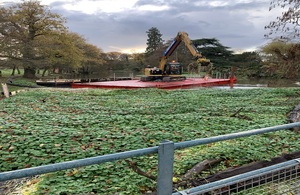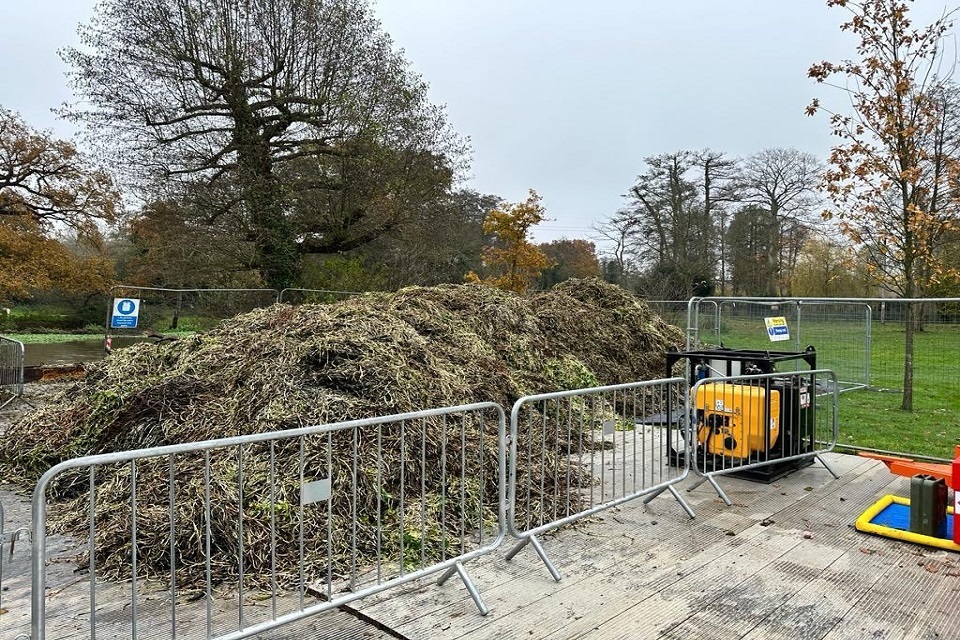Seventy-metre floating carpet of pennywort removed from River Wey
Environment Agency sends 200 tonnes of the invasive species for composting

It looks harmless, but floating pennywort can choke rivers of oxygen for fish and other water life
The Environment Agency has just finished removing more than 200 tonnes of floating pennywort from the River Wey, near Byfleet Mill weir. Upstream of the weir, the entire water surface had become hidden beneath a six-foot deep, 70-metre-long carpet of the weed.
Although pennywort can be removed from watercourses by hand, the size of this outbreak and the remoteness of the site proved a challenge. For three weeks, contractors used an excavator on floating pontoons to dredge out the weed and drop it into a moored barge. This was then towed upstream by a support boat and removed to dry for a couple of days on the river bank. It was then taken by truck to a nearby composting facility.
Environment Agency operations manager Maria Herlihy said:
This was important work to do in the run-up to winter. Not only was the weight of the weed putting pressure on the weir, but it represented a very real flood-risk to nearby properties with post-rain water levels far more likely to cause bank erosion.
Floating pennywort, an invasive species, was brought to the UK from the Americas in the 1980s by the aquatic nursey trade. Although it has been banned for sale for nearly a decade, it’s now in our watercourses and impossible to remove entirely.
Maria Herlihy added:
We have to do pennywort removal in some form along the Thames and the Wey every year, though this summer’s extremely hot weather has really boosted growth. Small amounts float downstream, though once they get stuck in nooks and crannies, it doubles in size very quickly to cover the watercourse - this is certainly the first time we’ve had to remove such a large raft of it in at least a decade.
We’d encourage the public to be on the lookout for pennywort, hogweed and other invasive species and report possible sightings to our incident hotline on 0800 80 70 60.” Free invasive species monitoring apps are available online.

A huge pile of floating pennywort ready for composting
The pennywort removal is just part of a range of winter readiness work the Environment Agency has carried out in the local area to protect communities from flooding over the wetter winter months. It has replaced the aging Millmead weir in Guildford for an entirely new structure, checked all flood protection assets are fully functional and continues to monitor and clean weirs and grills ahead of storms.